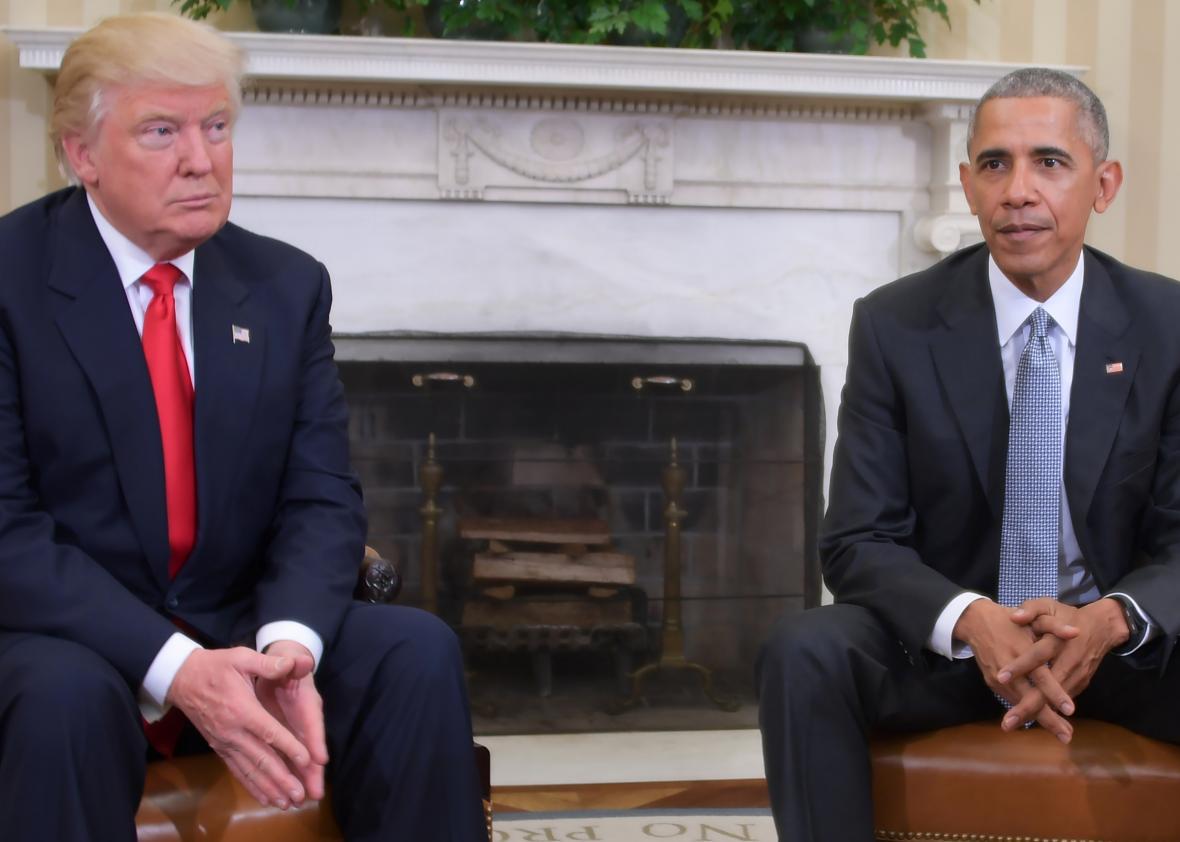The Obama administration announced on Thursday that it would be dismantling a long unused registry for visitors from mainly majority-Muslim or Arab countries, a program which president-elect Donald Trump has indicated he might revive.
The move, which goes into effect on Friday, does not change anything from an immediate practical standpoint. The registry, implemented shortly after the 9/11 attacks, was suspended in 2011 when 25 countries—which included 24 countries that were Arab nations or had majority Muslim populations, along with North Korea—were taken off the registration list. The program, known as the National Security Entry-Exit Registration System or NSEERS, initially required that men aged 16 and over from countries on the list register and be fingerprinted upon arrival in the United States, then regularly check in with immigration officers. The check in portion of the program was narrowed to apply to targeted check ins rather than a broad one after 2003, and the program was suspended entirely eight years later.
In its announcement, the Department of Homeland Security—which runs NSEERS—said the department had stopped using the program five years ago “after finding that the program was redundant, captured data manually that was already captured through automated systems, and no longer provided an increase in security in light of DHS’s evolving assessment of the threat posed to the United States by international terrorism.” The announcement went on to say that the program was “obsolete,” given that Homeland Security officials have long captured biometric data, such as fingerprints, from nearly everyone who enters the United States.
Trump, however, renewed concerns on Wednesday that he might use NSEERS as the basis for some form of registry of people from nations with large Muslim populations. When asked whether or not this week’s terrorist attack on a Christmas market in Berlin would cause him to consider anew previously stated and sometimes modified plans to ban Muslims from entering the country or create some kind of registry of Muslims, he said “you know my plans.” The transition’s communications director Jason Miller later clarified that Trump was reasserting his position that he would suspend immigration from countries deemed to have “high terrorism rates” and that his administration would “apply a strict vetting procedure for those seeking entry.”
One year ago on the campaign trail, Trump called for a “total and complete shutdown of Muslims entering the United States until our country’s representatives can figure out what is going on.” He was heavily criticized at the time, even by some Republicans, and has appeared to modify that position to the now vaguer ban.
As for the registry, there have been concerns that Trump would revive NSEERS either as a way to renew that registry or to start an entirely new and potentially more constitutionally fraught and frightening one.
When Trump met with transition official Kris Kobach last month, the Kansas Secretary of State flashed in a photo his apparent plan for the Homeland Security the Department were he to be selected as its secretary, a plan which appeared focused on a revival of NSEERS. Kobach had helped to craft the program during George W. Bush’s administration.
Trump surrogate Carl Higbie also caused a stir last month when he cited Japanese internment camps as a constitutional rationale for reviving NSEERS as a possible Muslim registry.
Thursday’s announcement described the NSEERS system not only as out-of-date, but also an inefficient waste of resources.
Last month, a former Homeland Security policy staffer told BuzzFeed’s Mike Hayes that it would be “logistically easy” for Trump to revive the program, which she said had been “costly and ineffective.”
With Obama’s move it would still be possible for Trump to try to revive the program, but it at least makes the logistics for doing so more complicated.
NSEERS did not result in a single prosecution, as Hayes noted, a fact that Kobach himself acknowledged back in 2004 when the 9/11 Commission criticized the effectiveness of the program.
